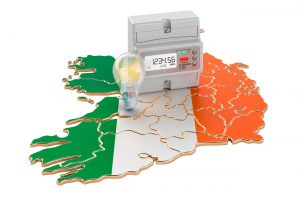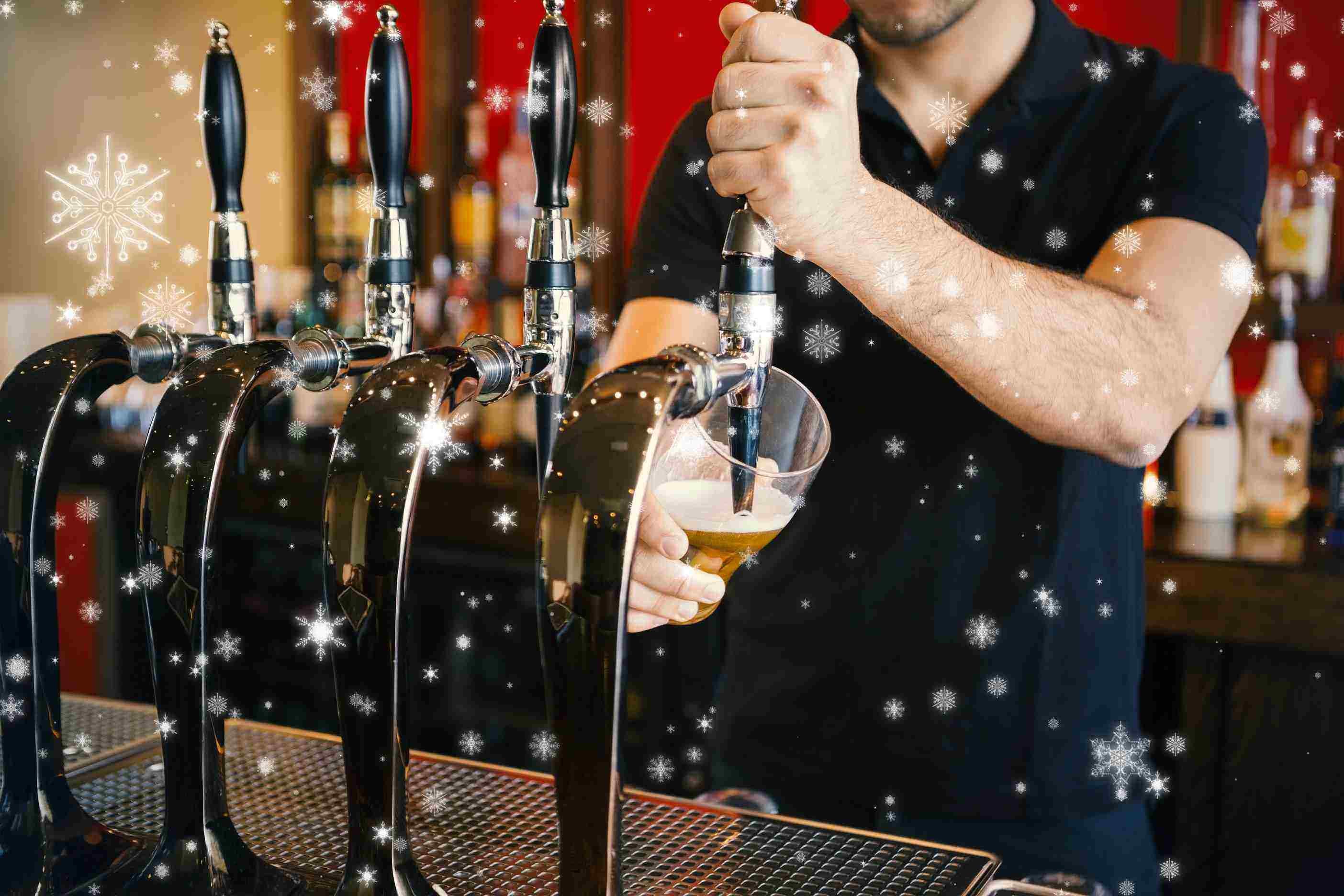Powerless

The latest energy price increases spelled bad news for the consumer.
But it’s the hospitality industry that seems to be at the sharp end of the price increases when a premises runs out of contract with its energy supplier.
Lately, energy companies have increased those bills by 200%, 300% or even 400%.
Such price increases look increasingly unsustainable with energy being the next-most expensive item on the publican’s bill after salaries.
And there’s little or no room for manoeuvre in a pub in the centre of Dublin where those operating from morning to late night seven days a week will be harder hit.
A case in point is Alan Campbell of The Bankers Bar in Dublin.
“It’s only possible to get a year’s contract with these energy companies,” he explains.
His own contract was up in September, which was unfortunate timing with Winter coming in.
“This year was totally different. My electricity bill had been 22 cent per unit but it went up to 62 cent, so almost tripled – but it’s the best I can get out of the three supply companies,” he says.
Where his Summer bill had hovered at around €1,500 a month, it has now gone up to and Autumnal €6,500 or €7,000.
And that’s just electricity.
“Gas won’t be as bad… but it won’t be far off it.”

“Gas won’t be as bad… but it won’t be far off it.” – Alan Campbell.
Bills have tripled and quadrupled, typically occurring when operators come off contract, agrees Licensed Vintners Association Chief Executive Donall O’Keeffe. He points out that if an operator has been on a contract with his or her energy supplier for the past 18 or 24 months and has come off it this Autumn, they’re facing a ferocious increase.
“The second issue, going hand-in-glove with that, is that it’s virtually impossible to get a new contract but only ‘month-by-month’ with the energy suppliers so there’s no clarity or certainty on where the bills are going.”
It’s bad now, he says, but there’s a lot of concern about the future.
“There’s no doubt it has put pressure on margins and in kitchens which require big energy input for cooking and cooling,” he says.
The large food pubs are the most exposed.
“There’s huge pressure there,” he adds, “and we’re also seeing strong increases in wage demand, in energy and food costs – virtually every cost is heading in the wrong direction…”
Government energy supports
To help partially counter this, the Minister for Finance Paschal Donohoe announced the Temporary Business Energy Support Scheme in Budget 2023.
“This looks pretty straightforward and sensible, based on a 50% increase on unit costs for a comparable month a year ago,” comments Donall, “If you qualify, you get a grant of 40% of the increased costs up to maximum of €10,000 a month. We would have liked it to be higher (50:50 for example).”
The TBESS announced in the Budget will certainly help, agrees Vintners Federation of Ireland Chief Executive Paul Clancy.
“While TBESS is welcome we remain sceptical that it will be enough for our members to get through the Winter,” he says, “As things stand the scheme is set to end in February which we argue is way too early. All the experts say the energy crisis will continue for the foreseeable future so our members will require support until the crisis ends.
Food inflation
Where once a year – or once every six months at worst – publicans would get notice of a price increase from their food suppliers, market volatility has seen such price increase notifications arrive every two or three weeks in some cases.
“There’s no sign of it abating, unfortunately,” said Paul Kelly, Director of the industry group Food Drink Ireland recently, “The average [cost] for 2023 is going to be higher again and that indicates we’re going to see a further wave of food inflation at retail level and food service level.”
At Andy’s Bar in Monaghan, Sean Redmond has been able to minimise food cost increases by preparing nearly everything in-house.
“We make our own Mayonnaise, Garlic dip and all desserts, dressings etc. This isn’t always easy as we’ve less staff now but homemade food always tastes better!
“We use our Blast-Chiller/Freezer and Vac-Packer to keep food waste to an absolute minimum.
“We try to use local products and food in season and this will become a bigger factor as the cost to transport will only increase in the future.”
There’s little doubt that publicans everywhere are struggling with the sheer rapidity of these increases.
“This time last year my bill was €447” says Michael O’Donovan of The Castle Inn on Cork’s South Main Street, “now it’s €1,602, an increase of nearly 400%.”
He’s out of contract with his energy supplier now so his rate has risen from 28 cent per unit to 52 cent – and what had formerly been a Night rate of seven cents has just disappeared.
“I bought timers six weeks ago so the coolers and ice-machines all turn off at 12.45am and don’t come back on until before lunchtime when we open,” he says and while the Government’s 40% intervention is welcome, “We’re still having to pay the other 60% of the increase,” he points out.

“This time last year my bill was €447” says Michael O’Donovan of The Castle Inn on Cork’s South Main Street, “now it’s €1,602, an increase of nearly 400%.”
Andy’s Bar in Monaghan, a former Sustainable Energy Authority of Ireland category winner, has taken considerable strides to cut energy costs.
“We’ve seen a 100% increase in our electricity bill,” says Sean, “Others going out of contract have seen increases of 400% to 500% for electricity and over 600% for Natural Gas.
“Our bills have gone from €3,000 to €6,000 (including 9% VAT) on a bi-monthly bill.” However, Andy’s has a structured energy management plan to an appliance level in place to include kW-rating, turn-on and -off time, energy maintenance, cleaning and checking schedules.
“We’ve benchmarked energy, water, waste, food waste and glass waste per cover,” says Sean, “At just over 4kWh we’re well under the EPA average of 8kWh per cover.
“For appliances with electrical elements start times are staggered depending on heat-up time to avoid exceeding Maximum Demand. We’ve sub-metered where possible to discover appliance overall consumption and profile how power is consumed. In recent years we’ve focused on improving the building’s thermal performance by insulating lofts, dry-lining walls, installing rigid insulation under floors and even lowering ceilings.
“The building is zoned to three areas: bar, restaurant and private room with a count-down timer sending heat to each area for a maximum of two hours. When areas are populated heat isn’t usually needed beyond this.
“Lighting, including emergency lighting, is 100% LED with motion-sensors for toilets and storerooms. We’re constantly revising all of this as – like everyone else – our electricity has doubled. We’ve had solar thermal panels since 2007 and are now investigating Solar Photo-Voltaic, but solar PV isn’t a panacea,” he admits, “It’s easier and cheaper to reduce consumption by way of management and upgrading appliances – especially lighting and refrigeration – than generate your own power.”
Off-trade energy hikes
The off-trade too has been hit by soaring energy costs.
“Our energy costs have gone up 150% since we came out of contract with our electricity provider earlier this year” comments Gary O’Donovan, National Off-Licence Association Chairman and Managing Director of O’Donovans Off-Licence Group in Cork, “with similar and even worse cases being experienced across NOffLA’s membership.”
Independent off-licences have many fridges in operation so the energy price increases over the last few months posed significant problems requiring cutbacks.
“We’ve disposed of some fridges in my own stores due to their electricity demand,” he said, “We’ve also extensive air conditioning systems and these are now only used in extreme weather conditions.
“The Government’s Business Energy Support Scheme is welcome but will only go so far in aiding small businesses and given that the energy crisis is showing no signs of easing in the short-term, it’s likely that continued supports will be required.”
“The real worry is next year”
Some publicans are looking at closing part of their premises to save energy, cutting down on opening hours and limiting meal service to Sunday lunches. That way they avoid the added expense of opening up part of the pub thus saving on heating, lighting and staffing costs.
“The feedback from members is frightening,” observes Paul Clancy, “We’ve a situation where a year or two ago publicans were paying 16c per kWh but are now facing a unit charge of 80c or 90c. This is simply not sustainable, so it’s a huge concern.
“At the very least, we’ll see a huge number of pubs closing mid-week throughout the Winter months.
“That’s probably the best-case scenario – it could be a whole lot worse but at this stage, we simply don’t know. Thankfully, October was very mild so that helped mitigate the worst of the bills.”
Making that decision to remain closed on certain days actually saved quite a few proprietors money but then neither were they earning a livelihood.
The real worry is next year. Without state supports some of those barely surviving at present will have to close their doors for good.
Paul Clancy warns, “The question Government must ask is this: ‘Do we want a viable hospitality trade in place next Summer when tourists start arriving?’.
“Because the stark reality is that the cost of doing business combined with the energy crisis is driving people from the trade.”









